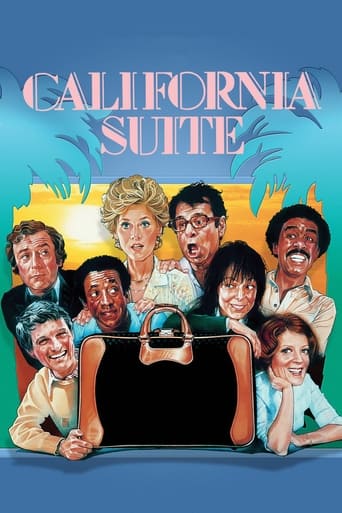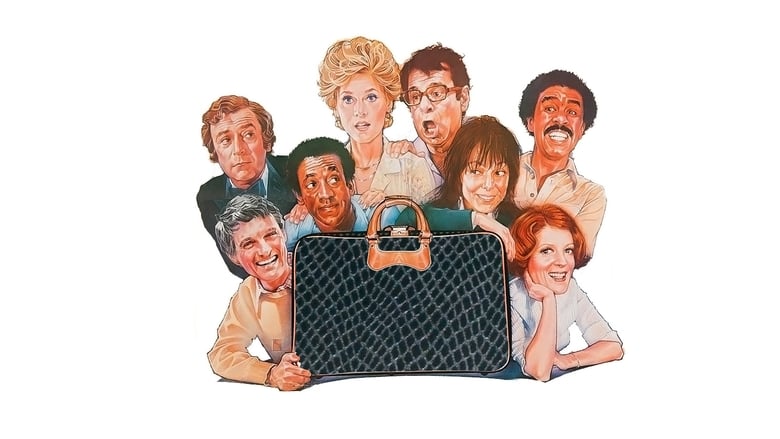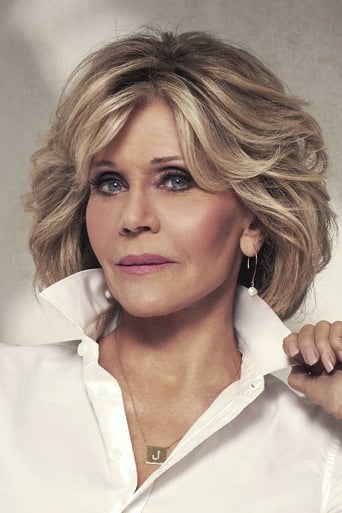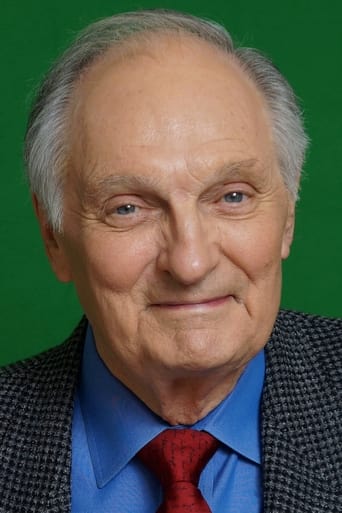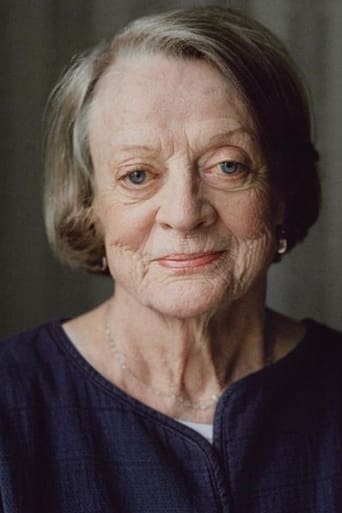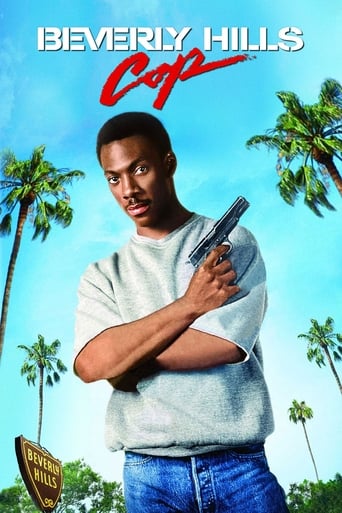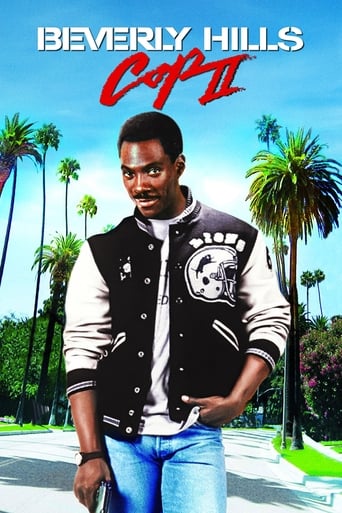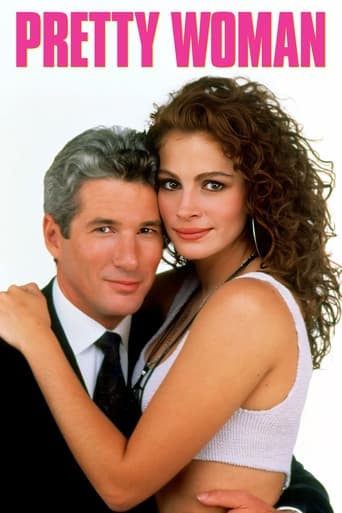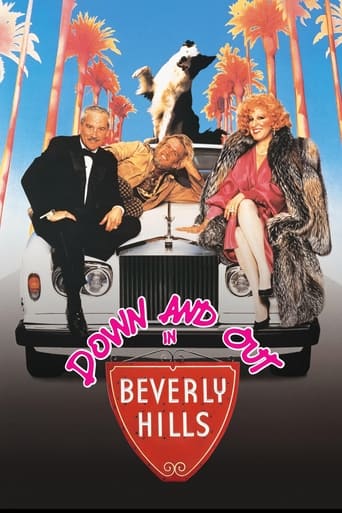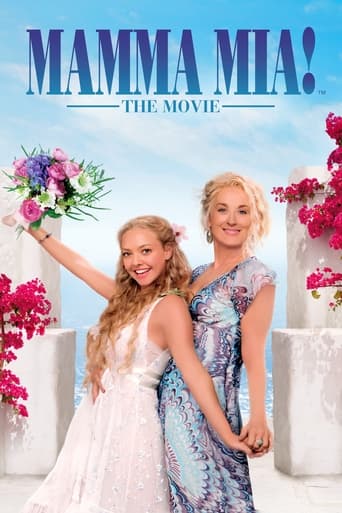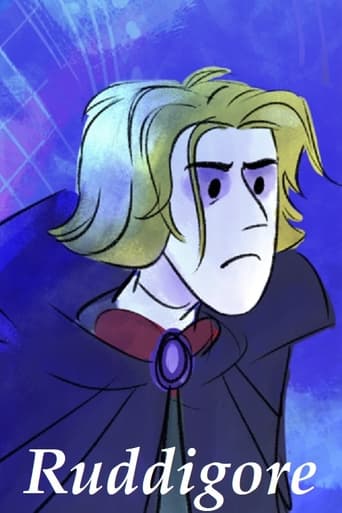California Suite (1978)
The misadventures of four groups of guests at the Beverly Hills Hotel.
Watch Trailer
Cast


Similar titles
Reviews
"California Suite" was written by Neil Simon and, as with most films for which he acted as scriptwriter, it is based on one of his stage plays. The main idea is similar to that in his earlier "Plaza Suite", namely that of following the adventures of different guests staying in the same hotel, in this case in Los Angeles. It is a "portmanteau film" with four separate stories and the hotel providing the one point of contact between them. (An earlier film with a similar premise was "The VIPs", based around several groups of travellers passing through Heathrow Airport). Hannah, a New Yorker, has flown out to California to meet her former husband Bill and to discuss the future of their teenage daughter. Diana Barrie, a British actress, and her husband Sidney are in town because she has been nominated for the Academy Award for Best Actress. Two doctors from Chicago (with the unlikely names of Dr. Chauncey Gump and Dr. Willis Panama) are on vacation with their wives. And Marvin, a Jewish businessman from Philadelphia, and his wife Millie have come out for their nephew's Bar Mitzvah. The "Visitors from Chicago" story, by far the weakest of the four, is little more than a not-very-amusing slapstick comedy based around the idea that the four characters, especially the two men, cannot move a hand or a foot without breaking something or injuring themselves. I wondered if the American Medical Association were considering suing Simon for the libellous insinuation that they would grant a licence to practise medicine to two such idiots. The Marvin story is a farce based around Marvin's increasingly desperate attempts to hide from his wife that there is another woman in his hotel room, with whom he spent the previous night. (They were unable to travel together and she flew out a night later to join him). Farce can often be desperately unfunny on screen; the cinema version of "No Sex Please, We're British", for example, gives little hint that it was based on one of the most successful West End stage plays of the seventies. Walter Matthau, however, plays Marvin so well (with good support from Elaine May as his wife) that this segment becomes highly entertaining. Simon, of course, is from New York and most of his plays are set in his home city, but here he makes a rare foray to the West Coast. As his fellow New Yorker Woody Allen had done in "Annie Hall" the previous year, Simon takes the opportunity for some comments on the culture wars between America's Atlantic and Pacific seaboards. Hannah and Bill can be taken as representing the East and West Coast respectively. She is a driven, sharp-tongued, neurotic and workaholic New Yorker, he is a gentler, more laid-back Californian (although possibly an adopted rather than a native son of the Golden State). Jane Fonda (looking even more stunning at the age of 40 than she had done ten years earlier in "Barbarella", especially when she gets to frolic on the beach in a bikini) and Alan Alda both play their parts to perfection; she in particular gets to deliver some of Simon's most barbed lines, like "I don't have a lifestyle. I have a life." and "You're the sort of person who'd solve the world hunger problem by having them all eat out. Preferably in a good Chinese restaurant!" I could certainly imagine Allen writing lines like that. The fourth story is a bit more serious. Maggie Smith won the Academy Award for Best Supporting Actress for her performance as Diana, thus going one better than her character, who loses out, and I must say it was well deserved, although she might have faced some stiff competition had Fonda been nominated. (This was the year when Fonda won "Best Actress" for "Coming Home", so I don't suppose she minded too much). This is the most serious of the four stories. Sidney is gay, and he and Diana are in a "lavender marriage", possibly a more daring plot line in 1978 than it would be today. Although they love one another in a non- sexual way, Diana has entered into this arrangement because her image as a happily married woman is good for public relations, but Sidney's indiscreet behaviour, however, has started to put this image at risk. Even though she has had a successful stage career, Diana's failure to win the Oscar is a blow to her rather fragile self-esteem, and despite her curious relationship with Sidney she finds herself relying on him for emotional support. Given his normal screen image as a red-blooded ladies' man, Michael Caine might seem an odd choice to play Sidney, but in fact he is very good. Simon's plays can vary in quality when transferred to the screen. For example, "Barefoot in the Park" (which also starred Fonda, not nearly as good as she is here) today comes across as horribly mannered and dated. "California Suite", however, is one of the better ones. One of the weaknesses of the portmanteau form is that it does not allow for the depth of plot and character development which is possible in a film based around a single story. It also has its strengths, however, one of which is its ability to combine various moods in a single film. "California Suite" is normally categorised as a comedy, and for three- quarters of the time it is, although the tone of the comedy varies from slapstick to farce to verbal wit. In the fourth story, however, it becomes a more serious character study. It enables director Herbert Ross to demonstrate several contrasting styles of film-making, featuring contrasting styles of acting, without the contrasts ever seeming jarring. 7/10, which would have been higher had the "Visitors from Chicago" story been of similar quality to the others.
Many IMDb reviewers have expressed fondness for this movie, most with a few caveats. It's not surprising to me that others like it and I don't. What's surprising is that those who do like it seem to care about the same things I do - script, acting, story, emotional impact - yet come to the exact opposite conclusion that I do in evaluating each element.I didn't see this movie when it came out, and that may be a key point. I'm old enough to remember still loving Alan Alda and everything he did at the time California Suite was made. Maybe if I had seen it then, I would have been impressed by the verbal back-and-forth between Alda and Jane Fonda, or by the inclusion of Cosby and Pryor as unexpected African American professionals, or maybe even by the near coming-to-grips with queer politics in the Maggie Smith/Michael Caine scenes. At the age I was then, I also found Walter Matthau almost irresistibly funny.But here's the thing. I'm also old enough to remember when I began to find Alan Alda characters, both as they were written and as he played them, excruciatingly self-indulgent, insufferably self-righteous, and generally in love with the sound of their own voice, with the net effect that they couldn't genuinely connect with anyone around them and didn't seem to care. Where could you find the quintessential, I'm-so-sensitive Alan Alda character of the 70's and 80's? Staking out the moral high ground, while snidely pointing out how no one else was joining him.That's the case here. He chews through Neil Simon's contrived and repetitive dialog with an everything-but-the-kitchen-sink smugness as if he's actually rendering astute, bullet point observations about Jane Fonda's character, or about the mature life choices he's made, and the epiphanies he's had. He's not. And neither is anyone else in this movie.Nevertheless, Jane picks up her flint, sharpens the edge and away we go, because that's what you do in a Neil Simon comedy. Except that no one goes anywhere. The script is so lacking in insight that waiting for these two to finish a scene, put down their tools, and go collect their checks takes a numbing eternity. With so many salvos fired, there should be some colorful bursts, but every one is a dud.Neither actor manages to pitch their lines with a single, convincing feeling, let alone build toward an emotional climax. The script simply doesn't provide one. So jarring in fact, is the why-not-here/how-about-there raising of their voices, that it brings to mind wartime speeches read aloud by captives. A few awkward cadences and over-emphasized words lets the home folks know they don't mean it. A rich irony indeed for Jane Fonda. Walter Matthau, I'm sorry to say, is just irritating. Even he can't redeem a trite, horrifying attempt at sexual comedy, without the sex, that would have been unworthy of a two-minute sketch on the Carole Burnett show. He deserved better. The late seventies were his salad days, when his gruff, call-my-bluff-if-you-dare persona usually generated laughs. Yet here is, downsized to a cloying, simpering imitation of someone funny that 1978 audiences no doubt expected to hit it out of the park. He tries everything but registering a complaint. I would have forgiven him for saying look, I'm usually good at this stuff, you know I am, but I got nothing to work with here.And don't get me started on Cosby and Pryor. From an inspired decision to write them as doctors, to a miserable, when-will-it-end insult to the audience, these two wasted talents are reduced to stumbling around in a dance macabre that the Three Stooges would have lent more dignity. It's as if the audience is being asked to laugh at a nasty, open secret: see, we let them play against race as urban sophisticates, but it's obvious what they're best at. Except it's not.Smith and Caine? Maggie manages what no one else does in this film, which is to draw us in, swinging deftly between rage and vulnerability. She occupies the only breathing space in the whole film. She's given little to do really, but succeeds well enough to be awarded that Hollywood staple, the make-up Oscar for having been ignored in the Prime of Miss Jean Brodie. Michael Caine plays her bored, gay husband with as much restraint as possible, but even he can't overcome the cluttered, too-clever-by-half lines Simon has written.All in all, California Suite is an obnoxious experience, fatally lacking in wit. Bloated scene after bloated scene simply collapses under too many lines with too little substance. Almost everyone involved should have known better, and has done much better on other projects. For Neil Simon, it's as if he knew none of it was sticking, so he just kept throwing more spaghetti at the wall.
Four separate stories (all written by Neil Simon)that take place at the Beverly Hills Hotel. There's brittle sarcastic Hannah Warren (Jane Fonda) meeting with her divorced husband Bill (Alan Alda) over custody of their child Jenny (a very young Dana Plato). As with most Simon scripts the one-liners fly fast and furious. Some of it is funny but Fonda's character is far too mean and Alda is obviously uneasy with the dialogue for it to work.Then there's Oscar-nominated actress Diana Barrie (Maggie Smith) and her bisexual husband Sidney Cochran (Michael Caine). She's agonizing over attending the Academy Awards and he tries to calm her. These two are very at ease with the comedy and drama and their story is easily the best in the film.Then there's Marvin Michael (Walter Matthau) there for a bar mitzvah. He arrives the night before his wife Millie (Elaine May) shows up. His brother sends a prostitute to his room--and she passes out and can't wake up before his wife arrives. Matthau is fun but May seems uneasy.The worst story is of two couples--Dr. Willis Panama (Bill Cosby) and his wife Bettina (Sheila Frazer) with Dr. Chauncey (Richard Pryor) with his wife Lola (Gloria Gifford). There story is basically non-stop unfunny and violent slapstick. Seeing two talented comedians like Pryor and Cosby fighting and biting each other isn't funny--just embarrassing. Even worse their wives are totally ignored! A real mixed bag here. The best joke comes from what happened after the movie. Smith won an Oscar for her acting here and her character in the movie didn't get the Oscar! Also why Smith got the award is beyond me. She's good but this is hardly an Oscar worthy performance. So, all in all, it's OK. I give it a 7.
Despite a talented all-star cast, "California Suite," which was based on a hit Neil Simon play, is a wildly uneven film. The episodic story traces several unrelated couples from across the U.S. that check into a Beverly Hills hotel. Like a comedic "Grand Hotel," the film cuts between the stories, although the editing makes no comments, ironic or otherwise, between the episodes. Actually, the often foolish, self-centered characters make "California Suite" more a "Ship of Fools" in the sunshine than a "Grand Hotel" under the palms. The original play was a follow-up to the more successful "Plaza Suite" and demonstrated Simon's shakier take on the West Coast than on the East. For the most part, the hotel guests speak and behave like the transplanted or visiting New Yorkers that they are.Jane Fonda portrays the ultimate New York snob, and her bitchy banter with ex-husband Alan Alda only underscores her arrogance and intolerance of anything that exists west of the Hudson. Alda is a New Yorker's stereotype of a Californian with pastel sweaters and perpetual tan. While a few amusing lines pass between the terminally mismatched couple, Fonda and Alda's episode is more grating than funny. However, the New York couple display Noel-Coward wit in comparison to the wasted talents and misfires in the scenes that involve Richard Pryor and Bill Cosby as vacationing doctors. The premise of two couples that arrive to find a reservation for only one has promise. However, director Herbert Ross should have studied Chaplin, Keaton, and Lloyd before he devised the broad, unfunny physical stunts that will leave viewers grateful that both Pryor and Cosby survived the mess and moved on to better material.However, the film does have some fine moments between comedic experts Walter Matthau and Elaine May. When Matthau arrives in LA a day early, his brother surprises him with a prostitute, who passes out from too much tequila and cannot be awakened in the morning. Of course, Matthau's wife, the always-delicious Elaine May, arrives, and the comedy moves into high gear. The best episode in the film, however, involves an English actress, Maggie Smith, and her bisexual husband, Michael Caine. The couple arrives to attend the Academy Awards, because Smith is a Best Actress nominee. While Smith has some of the best-written lines in the film, her role also has a depth and poignancy that goes far beyond the cardboard characters in the other episodes. Although Caine is equally fine, Smith's role is showier, and she won a deserved Academy Award for the part. The film's special irony is that the part of an Oscar-losing-actress won an Oscar for the actress who played her."California Suite" is one of those films in which a few superior scenes make it worthy entertainment, and the Smith-Caine episode pulls the film several notches higher than it otherwise deserves. Add the sparkling Matthau-May scenes, and there is at least one-half of a good movie. Although the Fonda-Alda episode is bearable and occasionally amusing, the Pryor-Cosby scenes are often labored and unfunny. However, with a strong finger on the fast-forward button, there is a good hour of comedy and fine performances to be had in this inconsistent film.

